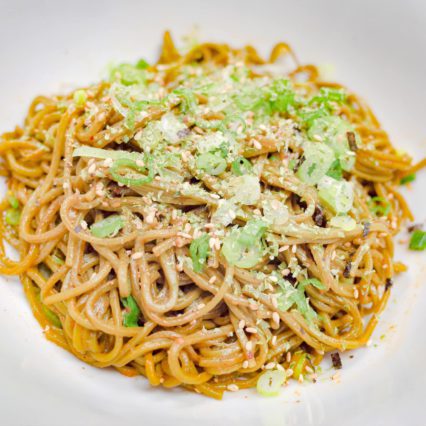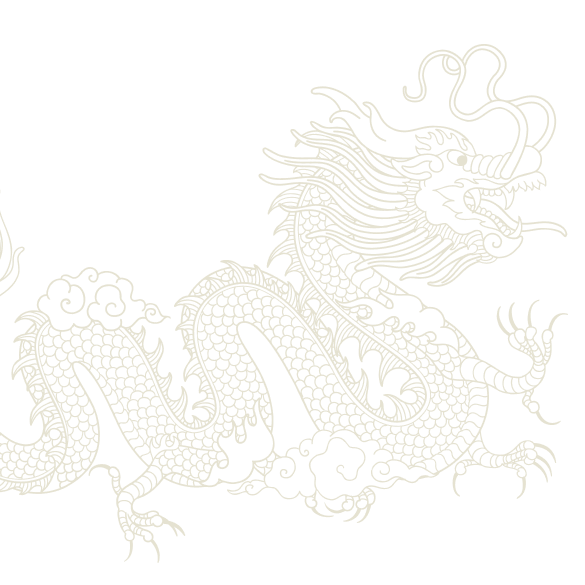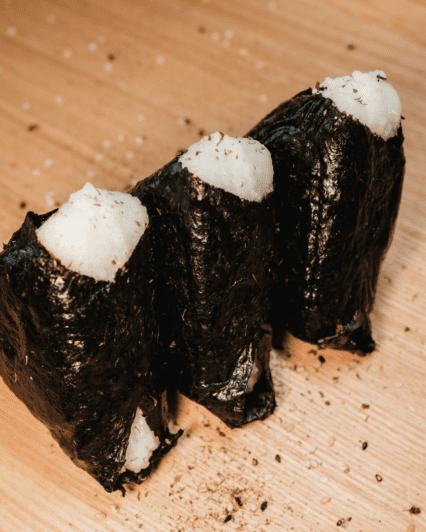Noodle Essentials

STARCH NOODLES
Saifun (Bean Thread)
Chinese (cellophane) noodles are made from the starch of green mung beans; extremely thin, translucent when cooked. Used in: stir-fry, soup, salad, other Asian dishes.
Dangmyon
Korean noodles of sweet potato starch are a bit bigger than cellophane noodles and absorb flavors of other ingredients when cooked. Used in: chap chae (Korean meat and vegetable dish).
Harusame
Thin and translucent Japanese ‘spring rain’ noodles are made from the starch of potatoes, rice or mung beans. Used in: sukiyaki, stir-fry, soup, salad.
Jjol-myun
Korean rice-based noodles are similar in size to spaghetti, with a little more chew. Used in: chilled, spicy Korean noodle dishes.
Maifun
Also known as vermicelli, these Chinese rice noodles can be deep-fried to make crisp Asian salad noodles. Used in: stir-fry, soup, salad, other Asian dishes.
Rice-Flour
Super thin Chinese noodles are long and translucent white with a rice-like texture. Also known as rice sticks or vermicelli. Used in: pho, chow foon, pancit bihon, stir-fry, soup, salad.
Rice Paper
Vietnamese translucent rounds have a slight chewy texture and add subtle tang to whatever’s wrapped inside. Used in: Vietnamese and Thai spring rolls.
WHEAT NOODLES
Chuka Soba (Ramen)
Long, dried Japanese noodles cook quickly; some have buckwheat added. Used in: yakisoba, stir-fry, soup, Asian main dishes.
Chinese Egg
Golden wheat/egg noodles come fresh or dried in assorted shapes. Used in: chow mein, lo mein, soup.
Gook Soo (kuk soo)
Thin, pale Korean noodles, sometimes called Asian angel hair, are available in a variety of shapes. Used in: soup.
Hiyamugi
Thicker than somen, thinner than udon, these Japanese noodles are also known as a slim four-sided noodle. Used in: cold Japanese mains and sides or with dipping sauce.
Kishimen
Broad, flat Japanese noodles are similar to fettuccine noodles; slightly thicker and wider than udon noodles. Used in: soup.
Miswa
Long and slim with a delicate flavor, these Filipino wheat/egg noodles can be fried or boiled. Used in: stir-fry, main dishes, noodle sides.
Pancit canton
Cooked with vegetables and meat for the popular Filipino dish of the same name. Used in: stir-fry, assorted noodle dishes.
Saimin
Hawaiian wheat/egg noodles are the key ingredient in the island favorite of the same name. Used in: soup.
Soba
Chewy and hearty, Japanese soba is a medium-thin buckwheat noodle. Used in: chilled or hot soup or with dipping sauce.
Somen
Thin, delicate Japanese noodles sold dried and bundled with a band. Used in: served chilled on their own with dipping sauce.
Udon
Japanese noodles are thick and hearty, with a slightly chewy texture. Serve hot or cold. Used in: fried vegetable dishes, soup or with dipping sauce.
YAM NOODLES
Shirataki
Thin, gelatinous Japanese noodles readily absorb flavors of other ingredients when cooked. Used in: sukiyaki, hot pot and similar dishes.
Tofu Shirataki
Yam-based Japanese noodles, with tofu added for softer texture, are full of healthy fiber. Varying thicknesses; requires refrigeration. Used in: sukiyaki, stir-fry, soup, salad, pasta.




